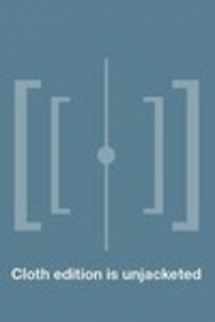
Anaconda: Labor, Community, and Culture in Montana's Smelter City (Working Class in American History)
ISBN-13:
9780252026577
ISBN-10:
0252026578
Author:
Laurie Mercier
Publication date:
2001
Publisher:
University of Illinois Press
Format:
Hardcover
328 pages
FREE US shipping
Book details
ISBN-13:
9780252026577
ISBN-10:
0252026578
Author:
Laurie Mercier
Publication date:
2001
Publisher:
University of Illinois Press
Format:
Hardcover
328 pages
Summary
Anaconda: Labor, Community, and Culture in Montana's Smelter City (Working Class in American History) (ISBN-13: 9780252026577 and ISBN-10: 0252026578), written by authors
Laurie Mercier, was published by University of Illinois Press in 2001.
With an overall rating of 4.5 stars, it's a notable title among other
books. You can easily purchase or rent Anaconda: Labor, Community, and Culture in Montana's Smelter City (Working Class in American History) (Hardcover) from BooksRun,
along with many other new and used
books
and textbooks.
And, if you're looking to sell your copy, our current buyback offer is $0.5.
Description
Laurie Mercier's hard-hitting study of "community unionism" examines the tenacity of union loyalty and communal values within the confines of a one-industry town: Anaconda, Montana, home to the world's largest copper smelter and the namesake of the Anaconda Copper Mining Company. Mercier depicts the vibrant life of the smelter city at full steam, incorporating the candid, sometimes wry commentary of the locals ("the company furnished three pair of leather gloves ...and all the arsenic (dust) you could eat"). She documents the early history of the town and the distinctive culture of cooperation and activism that residents fostered in the 1930s and 1940s. Ultimately, their solidarity and discontent with the company converged in the successful 1934 strike and sustained five decades of devoted unionism.During the cold war years, Anacondans held to their communal values and to unions in the face of antilabor and anticommunist pressures, embracing an "alternative Americanism" that championed improved living standards for working people, rather than unlimited corporate power, as the best defense against communism.Mercier chronicles the bitter struggle between two rival unions - the anticommunist United Steelworkers of America and the red-tainted International Union of Mine, Mill and Smelter Workers - that undercut the town's labor solidarity in the postwar years. She also explores how gender definitions - especially the male breadwinner ideology and the limits placed on women's political, economic, and social roles - shaped the nature and outcome of labor struggles. Mercier carries her investigation through the closing of the smelter in 1980, covering debates over the environment and the community's transformation into a deindustrialized, nonunion town. Underscoring the role of the community in molding working-class consciousness, Anaconda offers important insights about the changing nature of working-class culture and the real potential for collective action under the midday sun of American industrial capitalism.


We would LOVE it if you could help us and other readers by reviewing the book
Book review

Congratulations! We have received your book review.
{user}
{createdAt}
by {truncated_author}


